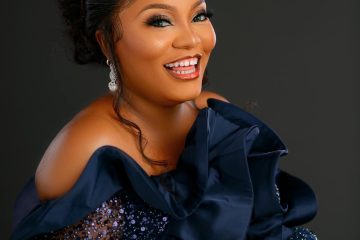Muhammadu Buhari Biography: Life and Times of Former President of Nigeria

Muhammadu Buhari is a former Nigerian military officer and the country’s former president. Born in Katsina, Nigeria, Muhammadu was raised by a single mother after his father died when he was four years old. As a child, he showed an interest in military duty. After graduating from high school, he attended the ‘Nigerian Military Training College.’
As part of his training, he was later transferred to ‘Commonwealth’ countries, including India, the United States, and the United Kingdom. He took part in the Nigerian Civil War and rose to the rank of military secretary at the army headquarters in the late 1970s. After participating in three coups d’état in 1966, 1975, and 1976, he became one of the senior military leaders of the December 1983 coup.
Following that, he was appointed as the new head of state. He declared a “war against indiscipline” and targeted corrupt political officials and companies. However, he used harsh tactics to control the media and the economy. This resulted in a deterioration in the economy, and he was arrested in 1985. In 2003, he lost the presidential race. However, he won the 2015 election as a representative of the ‘All Progressives Congress Party.’
Muhammadu Buhari Biography
Photo Credit: Horacio Villalobos, GettyImages
Buhari was born to a Muslim family on December 17, 1942, in Daura, now part of Katsina State, Nigeria. He was the twenty-third child of Mallam Hardo Adamu, a Fula chieftain from Dumurkul, Mai’Adua, and Zulaihat. He was named after Muhammad al-Bukhari, an Islamic thinker from the ninth century.
Yusuf, Buhari’s great-grandfather, was a merchant. Buhari was four years old when his father died, and Waziri Alhassan, the son of the Emir, Musa dan Nuhu, was appointed guardian of Zulaihat and her six children, including Buhari.
Buhari attended Qur’anic school and worked in livestock husbandry. He completed his elementary school at Daura and Mai’Adua, graduating in 1953. He was enrolled in Katsina Middle School (later called Katsina Provincial Senior School), where he completed his senior studies from 1956 to 1961.
During the sixth form, he was the school’s house captain and head boy. The Elder Dempster Lines gave him a scholarship in 1960 for a summer tour to the United Kingdom.
Buhari intended to become a doctor, and the only alternative available at the time was to study pharmacology at the Nigerian College of Arts, Science, and Technology in Zaria, which would take several years. Mamman Daura recommended him to join the Nigerian military and seek further studies.
SEE MORE ARTICLES
Oba Sikiru Kayode Adetona Biography: Legacy of the Awujale of Ijebuland
Diogo Jota Biography, Early Life, Career, Wife, Cause of Death, Net Worth
Peter Rufai Biography, Early Life, Career, Cause of Death, Wife, Children, Net Worth
Who was Bobby Jenks? 6 things you should know about the World-Series hero who died aged 44
Muhammadu Buhari Military & Political career
In 1966, Nigeria saw a brutal coup d’état in which the northern Nigerian government’s leader, Ahmadu Bello, was assassinated. Aguiyi Ironsi declared himself the leader, resulting in a counter-coup. He was thereafter superseded by General Yakubu Gowon. However, this political turbulence resulted in a brutal civil war in Nigeria.
The Nigerian Civil War began in 1967, when Muhammadu served in the ‘1st Division,’ under Lt. Col. Mohammed Shuwa’s leadership. After the conflict ended in 1970, he became a brigade major in the military. He was sent to India in 1973 to attend the ‘Defence Services Staff College.’ He was then appointed director of transport and supplies at the Nigerian Army Corps.’
Nigeria saw another deadly coup in 1975, with General Murtala Mohammed assuming control. Muhammadu was appointed governor of Nigeria’s Northeastern State. He was tasked with enhancing the economic and social well-being of his district. The territory was eventually partitioned into three pieces, with Muhammadu becoming governor of the state of Borno.
However, despite two coups in a decade, Nigeria has been unable to attain political stability. The country was in a horrible economic situation, and the leaders had become tyrants. Growing anger led to another coup in 1976, when General Mohammed was assassinated and replaced by his deputy, Obasanjo. Muhammadu was then named chairman of the newly established ‘Nigerian National Petroleum Corporation.’ He was appointed Federal Commissioner of Petroleum and Natural Resources.
Huge investments in pipelines and petroleum storage facilities followed, and a vast pipeline network was built during his term. Muhammadu attended the U.S. Army War College, ‘where he earned a master’s degree in strategic studies in the late 1970s. By the early 1980s, Nigeria had achieved complete democracy, at least on paper.
The then-president, Shehu Shagari, was unable to keep his electoral pledges. Corruption was widespread throughout his reign. The economy was experiencing a downturn. Muhammadu was one of the military officers who conducted another coup against the Shagari administration in December 1983, following which he took over as head of state.
Despite his initial efforts to reduce corruption and improve Nigeria’s economic situation, Muhammadu’s government was unable to make significant progress. Several harsh measures were implemented immediately, including the formation of a ‘Supreme Military Council’ and a ‘Council of States.’ A retrenchment exercise was carried out among top civil and police officials.
However, several of these policies were deemed very dictatorial. One such action was the authority granted to the chief of staff to hold anyone suspected of working against the national interest without any proven charges and purely based on suspicion.
The ‘National Security Organization’ was given the authority to eliminate the elements that encouraged opposition. As a result, several journalists, opposition politicians, and social workers were threatened, harassed, and imprisoned.
Muhammadu was particularly brutal against corruption, and it is estimated that more than 500 officials and businesspeople were imprisoned within his first few months in office. In 1984, he issued the ‘Protection Against False Accusations Decree,’ which was widely regarded as Nigeria’s most oppressive statute.
Initially, the tough measures implemented by his government were welcomed by both the people of the country and his subordinates. However, with time, he became carried away. As a result, a wave of discontent began to spread among his subjects. General Ibrahim Babangida conducted a coup against the Buhari administration in August 1985. Buhari was held at a modest villa in Benin.
However, his incarceration time ended in 1988, and he was released. For the following 15 years, he lived a civilian life. He also chaired the ‘Katsina Foundation’ and the ‘Petroleum Trust Fund.’ His tenure with the latter organization was quite successful.
In 2003, he chose to return to public life and run in the presidential election for the ‘All Nigeria People’s Party.’ However, he lost to Olusegun Obasanjo of the ‘People’s Democratic Party.’ He lost the 2007 election, which was marked by several irregularities.
He chose to run again in 2011 and lost yet again. This time, the election was deemed fair and was therefore applauded. In 2014, he joined the ‘All Progressives Party’ of Nigeria, the major opposition to the ruling ‘People’s Democratic Party.’ The notorious Islamic terrorist group ‘Boko Haram’ was a major electoral topic. Muhammadu’s military history and assertiveness make him a viable presidential contender in 2015. He ultimately won the election.
His term had a difficult beginning, with Nigeria falling into an economic recession in 2016. However, the final impression of his reign was mixed. He contested in the 2019 elections and won again.
Personal Life
In 1971, Muhammadu Buhari married Safinatu Yusuf. They have five children together. The pair was divorced in 1988.
Buhari and Aisha Buhari were married in December 1989. They have five children together. Their son Yusuf married Zahra Nasir Bayero, the daughter of Emir Nasiru Ado Bayero, in August 2021.
Death
Buhari died in London, England, on July 13, 2025, while undergoing medical care after being hospitalized, according to his spokeswoman, Garba Shehu. He was 82. Buhari was buried in Daura, Katsina State, on July 15, 2025.
Muhammadu Buhari Net Worth
Muhammadu Buhari’s net worth in 2025 is estimated to be $80 million. Muhammadu Buhari GCFR is a Nigerian politician and former president of Nigeria. Buhari is a former Nigerian Army major general who served as the country’s military head of state. He was part of the list of Nigerian Presidents.




